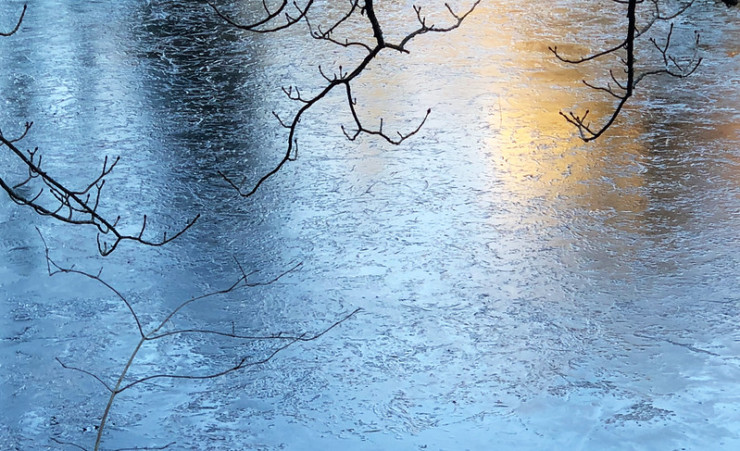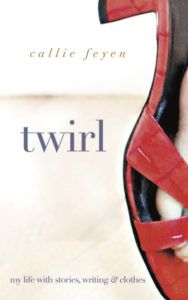I started reading Jeanne Murray Walker’s book of sonnets, Pilgrim, You Find the Path By Walking, on an early summer morning, a couple of hours before my daughters’ swim meet.
The sun rises before 6 am in the summer, and it wasn’t dreadfully hot yet, so that morning I sat outside with my coffee and my book, sipping and reading slowly while the world was still and quiet.
I decided I would read one poem a day, and journal about it using methods Megan Willome and Tania Runyan write about in their books, The Joy of Poetry and How To Read A Poem. Reading a poem a day was a relatively new ritual for me. I’d completed reading my first book of poems this way that spring, using Melissa Reeser Poulin’s book, Rupture, Light, and found that the practice was a way for me to retreat daily, something I understand is vital for my well-being, creativity, and productivity.
This is not to suggest I am always in need of quiet. That morning, as on all swim meet mornings, I was excited and looking forward to watching my girls compete. It is always a raucous and inspiring time, and I’m grateful to be a part of it. In a similar way, when I am teaching, I love leading discussions, exploring stories and finding meaning in literature with my students. If I’m giving a reading, I love answering questions from the audience, or reading excerpts from my work.
I give everything I am to those moments, and I’m happy to do it. I suppose, in my moments of retreat, I find everything I am. My moments of retreat allow me to share myself with the world, and since that is something I strive to do daily, I find ways to retreat daily, too. Reading poetry is one of those retreats.
And like all the seasonal pairings I’ve written about for Nicole Gulotta’s Wild Words, the season of retreating blends together with the season of finishing. In fact, I don’t think I can get to one without the other.
I remember distinctly the afternoon I wrote the last sentence of my first book. It was a Sunday, and normally, I try to keep that day free of work. Writing however, has never felt like work. It’s always felt like something necessary—like retreating—in order for me to thrive.
So I filled a bag with my notebook, my pen and pencil case, my copy of Romeo and Juliet, and I set out to look for a coffee shop, with Shakespeare’s last act of this teenage romance and what I would write about it on my mind.
I’d never written at this coffee shop before, and haven’t since, as it’s always been crowded. But that day, there was a table open, so I set up camp, hoping this was a good sign. I was feeling trepidation about coming up with something to say about the loss of two young lives that felt and understood and yearned for so much. I was also having fun with writing this book, and I think I probably didn’t want to let it go.
In her introduction to “The Season of Finishing,” Nicole writes, “I’d say this is where it all ends, but it might also be the start of something new.” I could not articulate this at the time, but what Nicole writes here is something I felt. I felt a new beginning forming, but I also knew I’d need to let this story go in order to allow it to, well, begin.
I was conflicted, and so that’s how I began writing. At a little table in the corner, hovered over my notebook, I wrote how hard it is for me to write conflict. However, it is that tension between good and bad, joy and sorrow, peace and angst, that the story grows and becomes whatever it’s supposed to become. It’s the responsibility of the writer to cultivate that, and it’s the responsibility of the reader to allow oneself to feel this tension throughout the story.
What’s more, stories (to piggyback Nicole and Mary Oliver’s phrase wild words) are wild. Stories are maps showing you both where you’ve been and where you could go. But they cannot be tamed. They cannot fit into neat little boxes.
This comparison to maps and stories happened to be what made up my last sentence of my first book. Writing it, I knew I was finished, and I was startled to understand this. Of course I knew there would be revisions, possibly total re-works of chapters or even cuts, but I knew this last sentence is how the book would end.
I was startled, yes, but it felt good to be in a moment of retreat when it happened. I closed my notebook, and my copy of Romeo and Juliet. I put the cap on my pen, and put it all in my bag. I brought my empty mug to the tub of dirty dishes, left the coffee shop, and then went across the street to the bakery for a celebratory blueberry muffin (my favorite).
I walked around the block, slowly, thankful for all of the seasons a writer goes through working together to help me finish.
And then help me begin again.
Discussion:
1. How do you find ways to retreat? Do you have a season for retreating, or do you find weekly and/or daily ways to retreat?
2. Do you ever take a social-media cleanse or retreat? What does that do for you or for your writing?
3. Have you ever finished a writing project in a strange place? Did it surprise you or startle you to find it the ending?
4. When you embark on a writing project, do you map it out before beginning?
5. What sorts of things do you do to celebrate and/or honor finishing a project?
____
Editor’s note: Join us this month as Callie Feyen leads a book club discussion of Nicole Gulotta’s Wild Words: Rituals, Routines and Rhythms for Braving the Writer’s Path. We’re reading on the following schedule:
Photo by Rosmarie Voegtli, Creative Commons, via Flickr. Post by Callie Feyen.
A Writer’s Dream Book
This book gives language to the fierce concerns of an ordinary woman. It tracks small but defining moments, attesting to the joys of design and the pleasure of color we feel as we choose and joke and work and play in jeans, sandals, a coat, T-shirts. Start reading and you will be hooked.
—Jeanne Murray Walker, author of The Geography of Memory
- Poetry Prompt: Courage to Follow - July 24, 2023
- Poetry Prompt: Being a Pilgrim and a Martha Stewart Homemaker - July 10, 2023
- Poetry Prompt: Monarch Butterfly’s Wildflower - June 19, 2023


Michelle Ortega says
So, when I saw this post come through email, I thought to myself that I was a week behind, and had to catch up…wow, half a book behind, ma’am! I am a slow reader, and ruminate before I respond…and by the time I’ve gotten to my response, it’s halfway through the next book club!
I have enjoyed reading through this book. Nicole and I speak the same body language, and her love of oils and yoga and quiet space with a body that speaks to her all the time…yeah, I get it.
I have lived through and processed so much of what these chapters, and you, Callie, have written about. I’m in the season where my daughter is grown, and my time is essentially mine to manage. The chapter I have paused on, especially during this pandemic isolation time, had been “Listening to my Body.” It’s been SCREAMING at me for a long time. The past couple of months I have devoted to a self-care intensive. And as I uncovered needs and turned some things around, the writing started moving again. I had been in a lull for a few months, but actually finished a poetry ms to submit to a chapbook contest, and had the time for another writing opportunity that will be set into the world *very* shortly. Like, in a few hours.
I also finished and released some very time- and energy-intensive obligations, and when it came down to making the final decision, I cut the cord because I knew it would free up a mountain of time to write. I’m not sure a few years ago I would have believed I had that option; now i understand it’s essential. It’s letting go something finite, to welcome in a liminal time (I’m good with that). I have just a whisper of what’s to come, but it hasn’t taken any form. Yet.
In past years, I’ve signed up for group retreats, I’ve created personal writing retreats in remote areas, and I have popped into NYC or down the shore for daily retreats. I’m in a season now where my home is the greatest retreat. I haven’t spent so much time here, ever, I think (awake, at least), and I have come to enjoy these rhythms since mid-March.
I realized that I journal and do a lot at my dining table, which faces a long room and windows that open to the woods. It’s peaceful start to the day, and comfortable enough for drawn out mornings. I do my *serious* writing at my computer in the bedroom (a section that does not interfere with sleep), and I’ve spent more time there. I had to clear the space, though, of lingering responsibilities that had to get finished. Cleared out the mental clutter I didn’t realize was there. And now it’s a great space to create once again.
So there’s my response to the last few posts, all wrapped up in one. Thank you Callie, for the weekly columns. You’re such the storyteller. And thank you, Nicole, for a gently crafted read that led me deeper to my roots and writing.
Megan Willome says
I knew when I’d written the last sentence too, Callie.
I’m so glad the practice of retreating with poetry and journaling through has been so helpful to you. With the last two poetry collections–Barbara Crooker’s “Selected Poems,” which I recently finished, and John O’Donohue’s “To Bless the Space Between Us–I’m not doing as much journaling as just copying phrases I like and then launching into a poem of my own. But that’s good too.
Michelle, so happy to read all this! And I have a corner of my bedroom with an adjustable standing desk that is where I do some of my best work. It’s in a corner and overlooks the backyard, which right now is full of blooms, butterflies, and hummingbirds.
Michelle Ortega says
Megan, mine is near the window, too. 🙂 Alas, no hummingbirds but very barky chipmunks provide the backdrop!